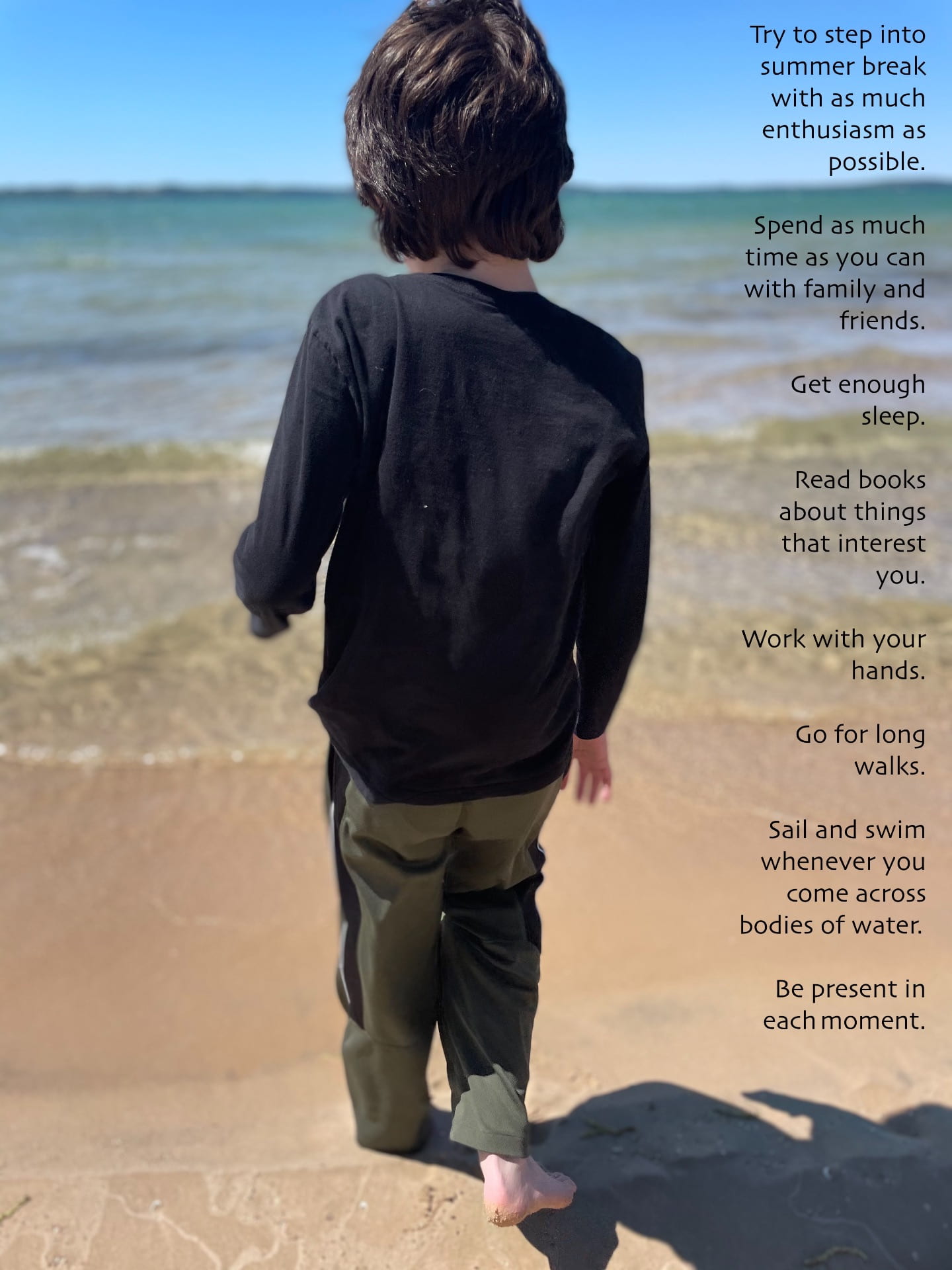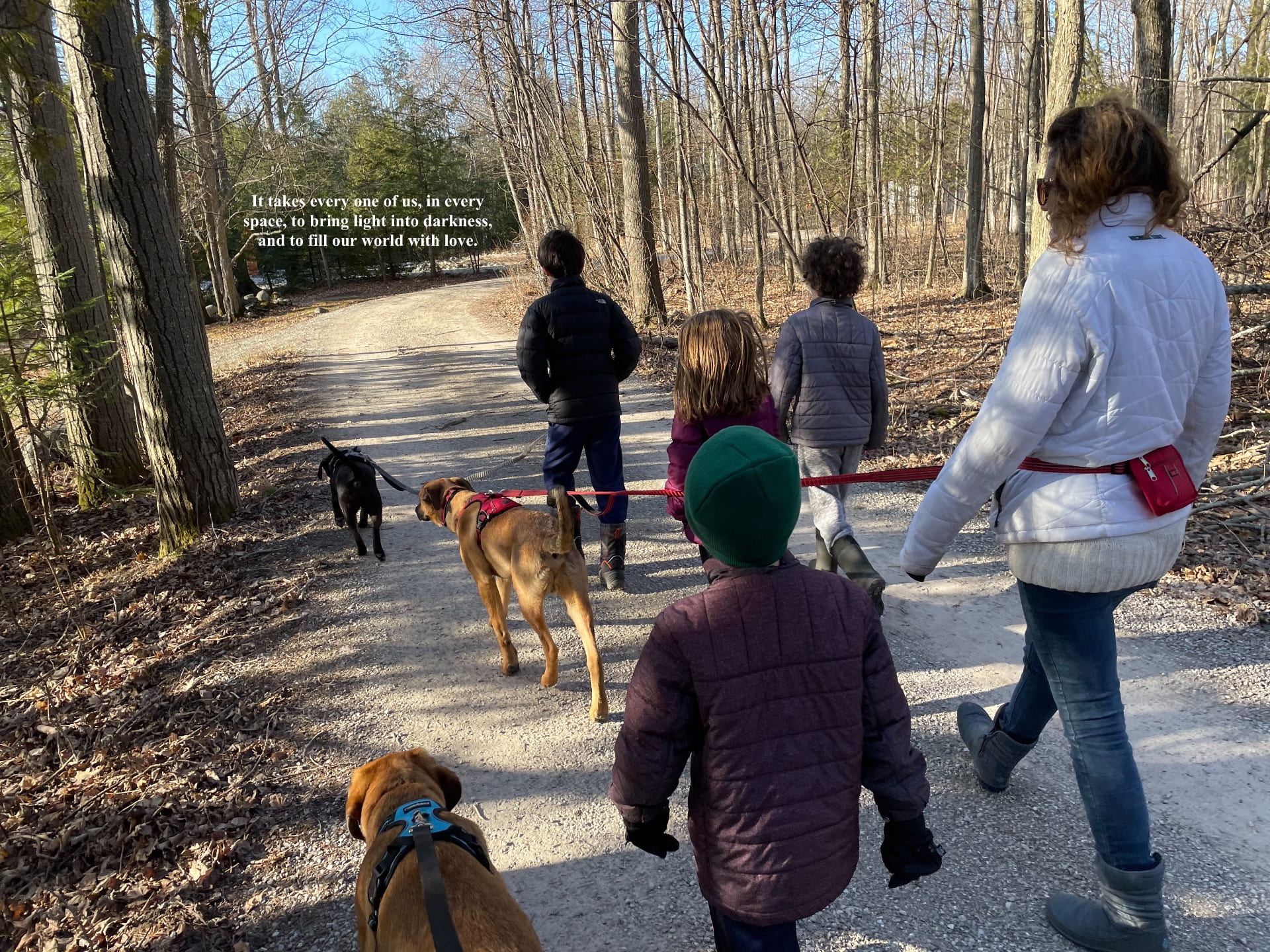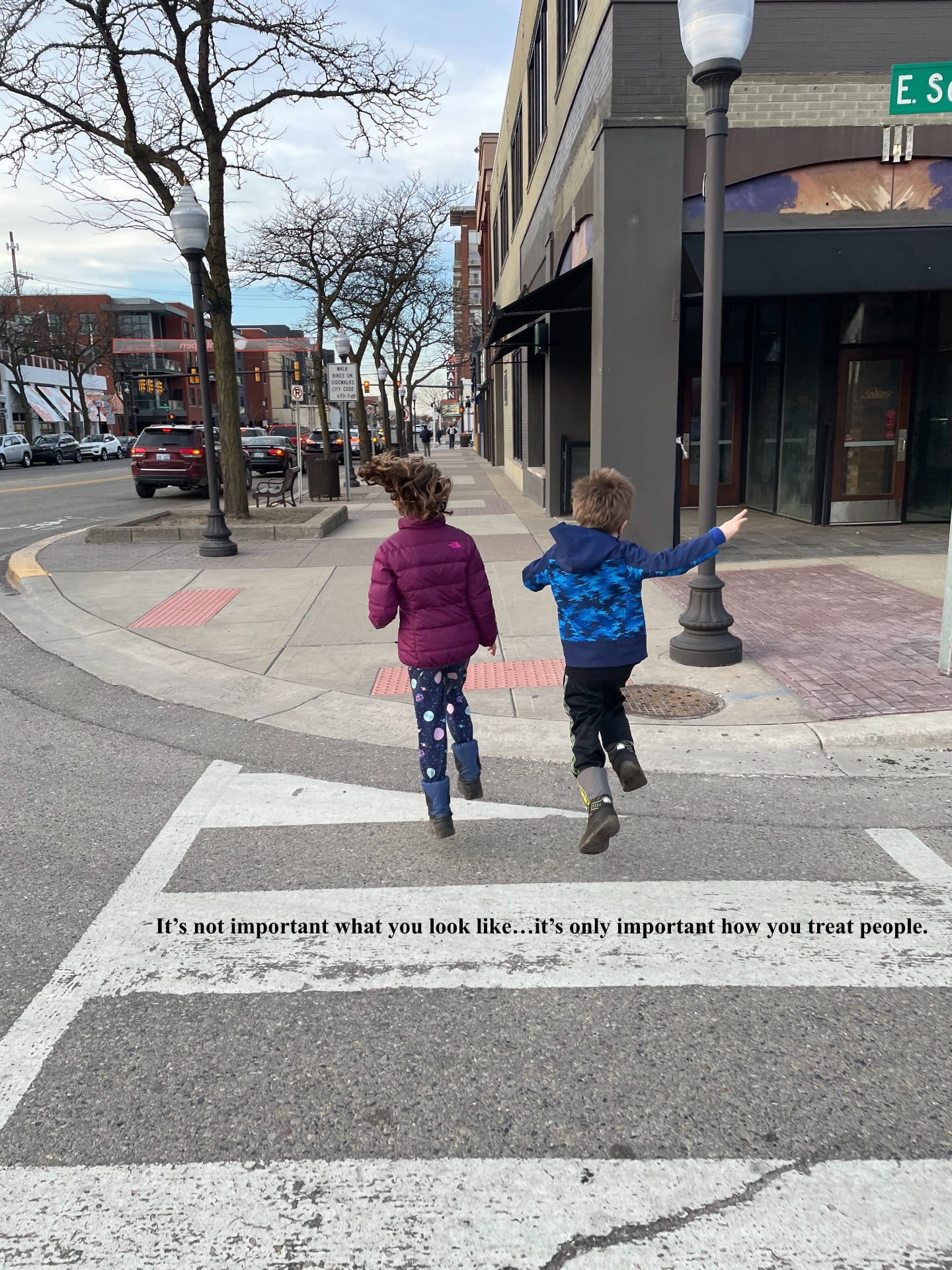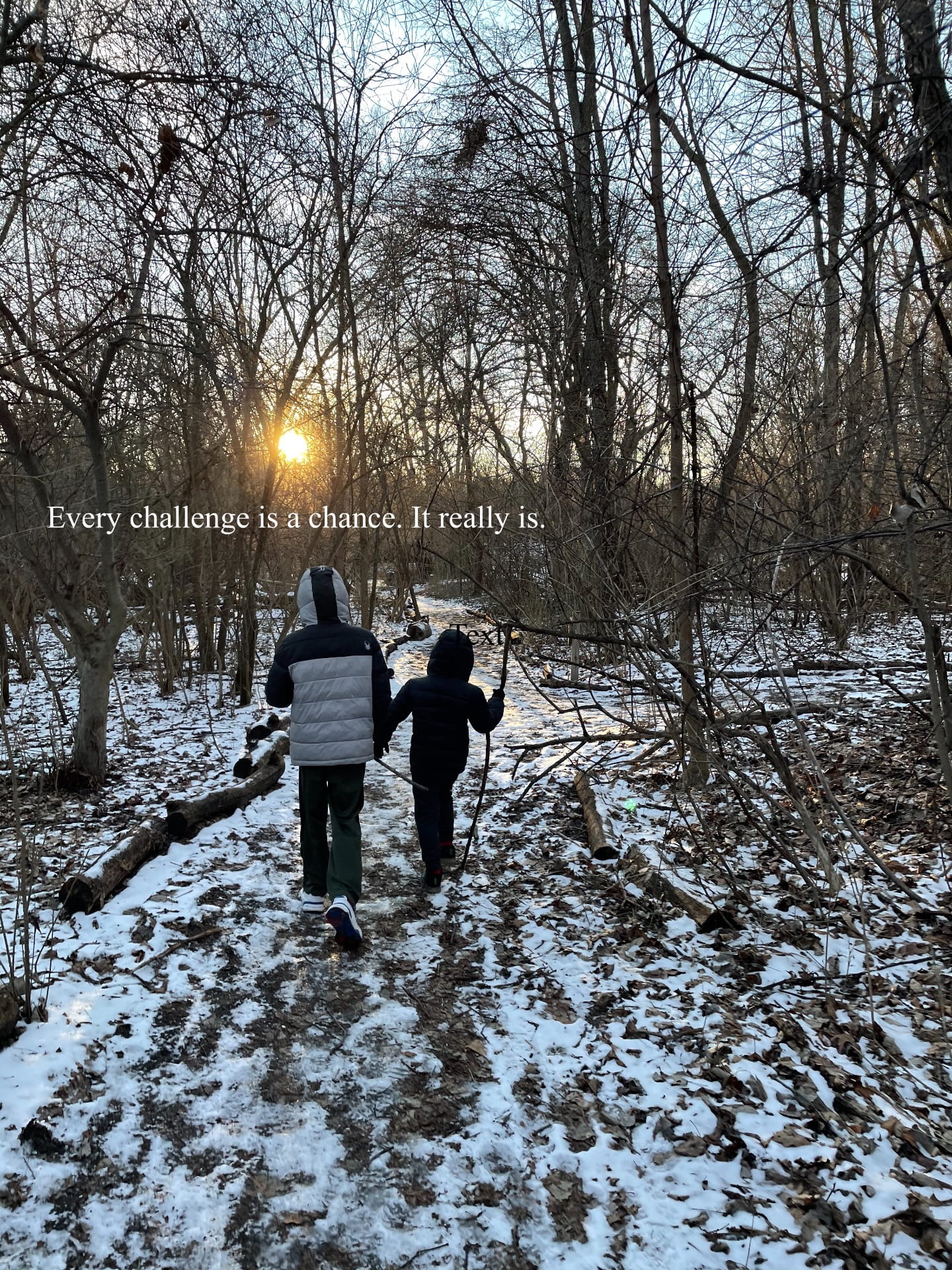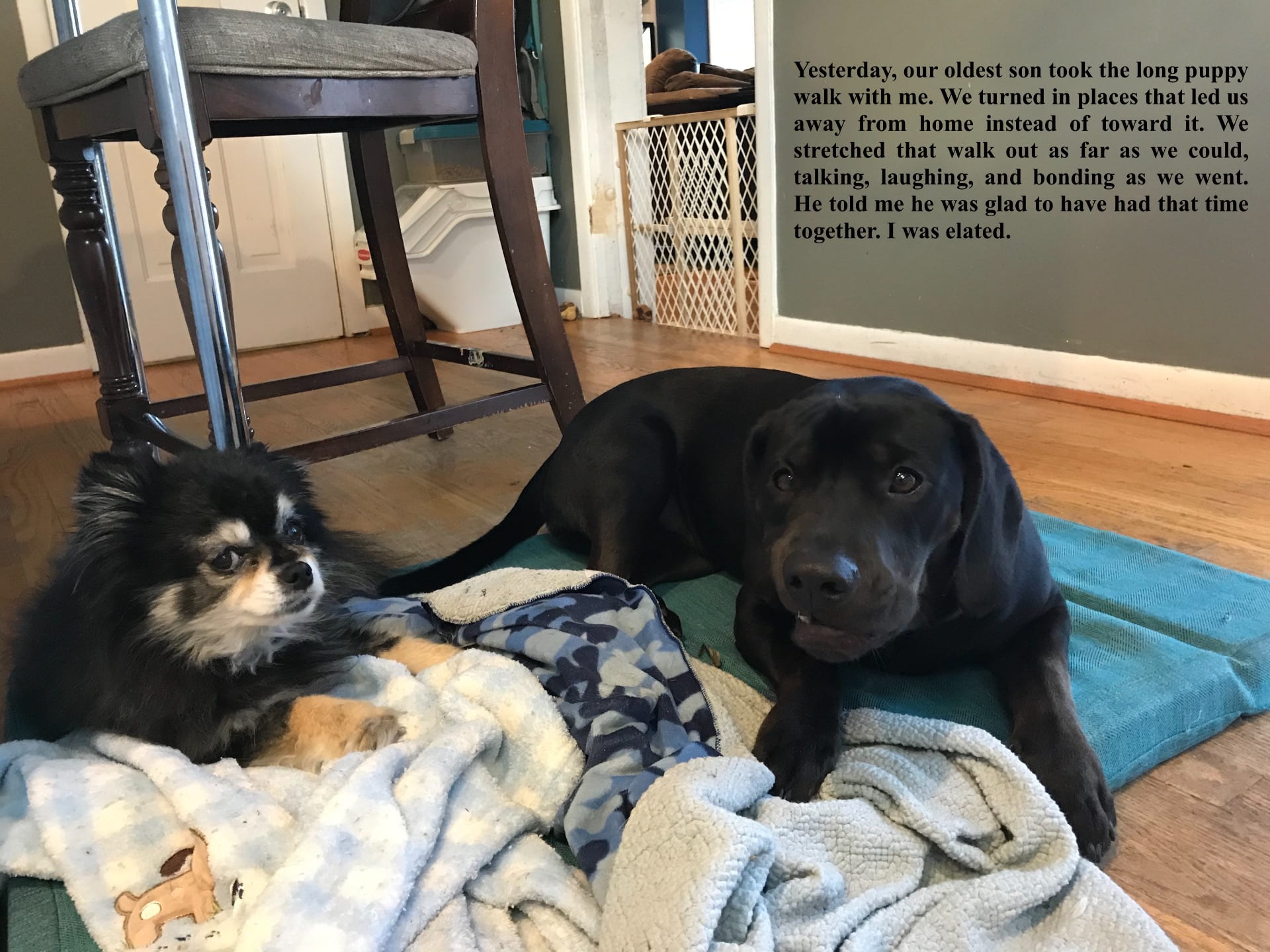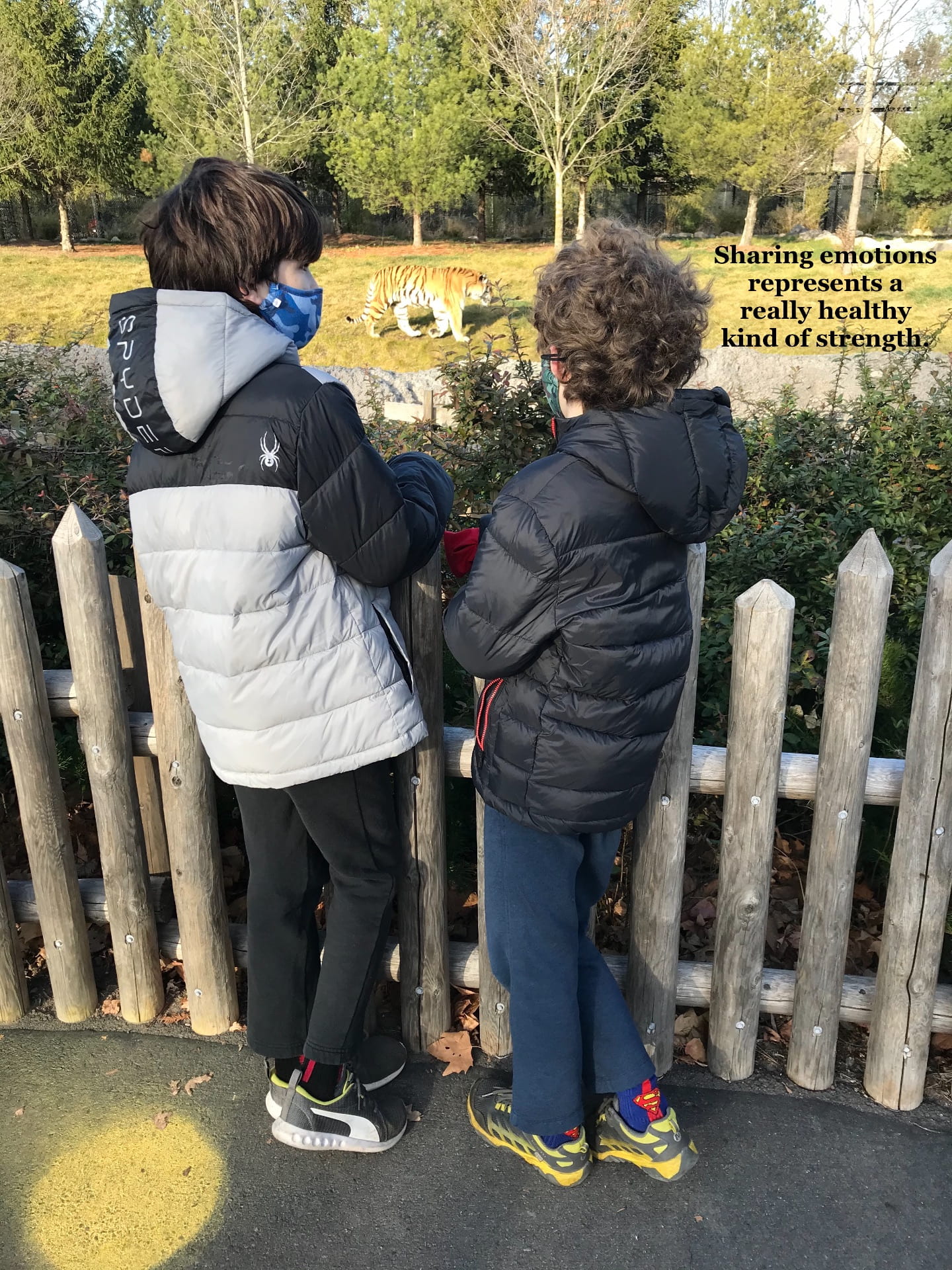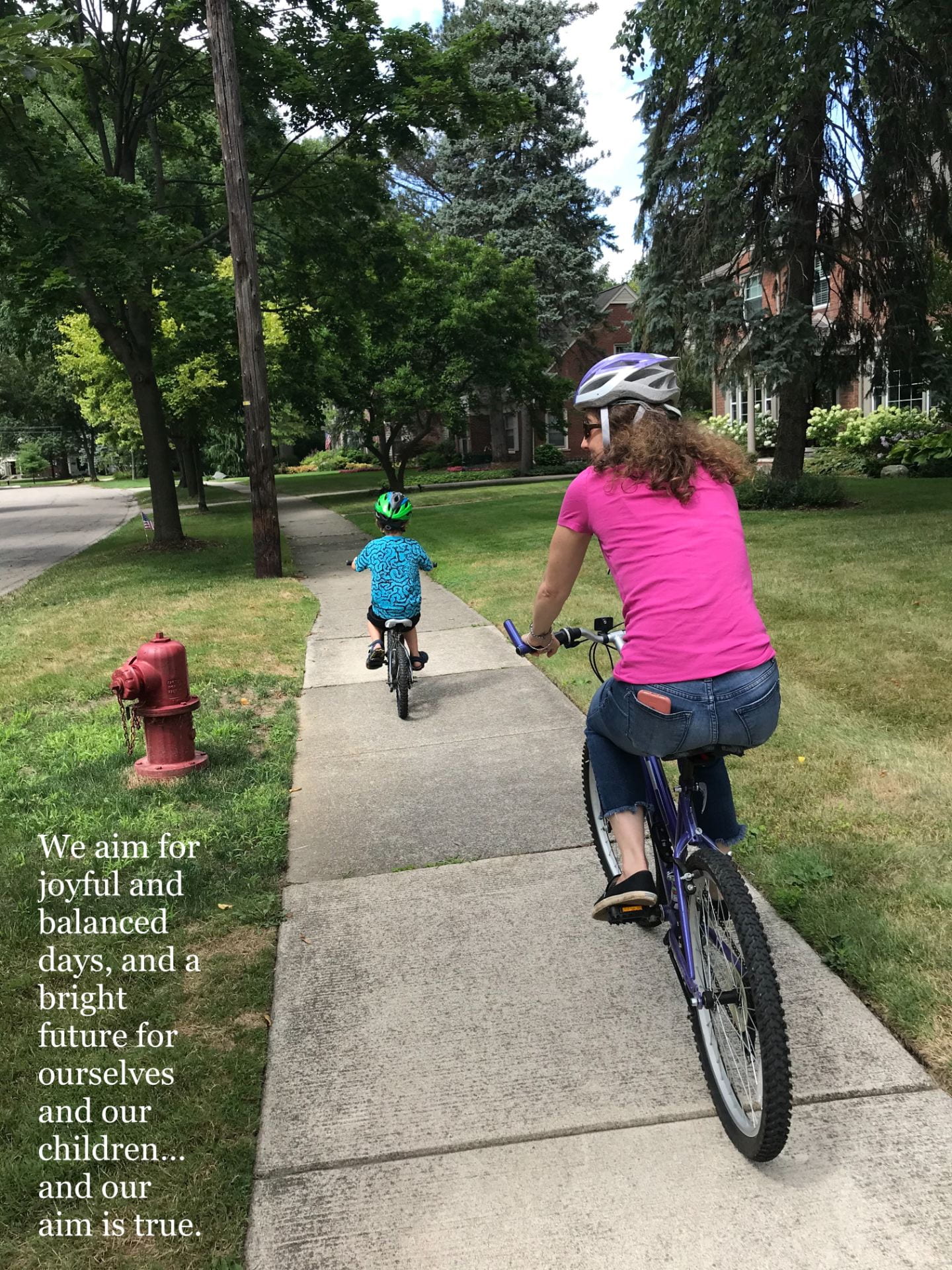
My wife is a wonderful person.
Currently, she’s leading a shoe drive. You can read about it here: https://www.candgnews.com/news/shoe-drive-raises-funds-for-community-action-supports-entrepreneurs-abroad-120531
I’ve never lead a shoe drive. She’s leading one…and it’s helping a lot of people, brining a lot of people together, and strengthening a community by way of their shared interests and core values.
My wife is a wonderful person.
Let’s take a step back, though.
In the mornings, she makes sure that all ten of us have everything we need for a successful and fulfilling day. Herself, our four dogs, our four kids and me (and not in that order). Everyday, we each head to where we’re going, fully equipped to do the things we need to do…because of my wife.
My wife is a wonderful person.
Often, our kids aren’t sure what they want for lunch. She works with them until they come to some sort of agreement. “Works with them” being a rather loose phrase for how the process goes. Our kids are kind and loving, however, they occasionally ignore my wife in the morning (and midday, and in the afternoon, and in the evening…we’re working on it). So, my wife has to exercise an incredible amount of patience in order to get things going, and she does.
And get this, they always have balanced lunches…and not just balanced lunches, but balanced with things that each one of them will eat. One of them seems to like grapes along side turkey that’s rolled up with cheese, and some yogurt, and carrot sticks, and another one seems to like turkey on little Hawaiian buns, next to cucumbers (cut in half the long way), with a cheese stick and some watermelon, while yet another one seems to be partial to sun-butter and jelly (or something like that). I think our six-year-old’s preference is left over tikka masala. Who knows. My wife does.
My wife a wonderful person.
Getting us out of the house and fed is one thing. In and of itself, I can’t imagine how it’s done. I mean, I can roll turkey and cheese, make a sandwich, and even put tikka masala in a thermos, that’s not where my inability to imagine the ordeal is rooted. It’s that when I think about coordinating it all for myself, five other people and four dogs, and making each one happy, it seems an unlikely, if not an impossible task. When she does it (every day), it doesn’t even look like she’s struggling. Amazing.
My wife is a wonderful person.
During the day, I sometimes call my wife. I need her to help me problem solve, I need to share my thinking with her, and sometimes I need to vent. How does that help her, you may ask? Actually, it doesn’t. She takes time out of her days to help me. She listens, she supports, she reminds me that I’m capable, and she celebrates my progress.
I often call her on my way home, too. She get’s to listen to me talk while she’s managing endless after school activities like homework, snacks, playdates, and piano lessons. Lucky? Not exactly. Wonderful? Precisely.
For over a year, she’s been doing everything she always does, personally and professionally, while also making sure that our four kids (ages 6 to 11) have remained engaged in school and progressing, nourished, balanced, physically active, spiritually connected, and extremely comfortable by any standard, let along for a bunch of people in a pandemic, relegated to each other’s space all day…every day.
My wife is a wonderful person.
My wife is the well regarded and highly respected Executive Director of our synagogue. Alone, what she does in that role is really unbelievable. She pours her heart and her soul into it, she always has our spiritual community in mind, and she’s constantly thinking about ideas and implement programs to enhance the lives of each individual who’s in any way connected…while also extending thoughtfulness, compassion, and grace to people in all spaces of the greater Detroit area, throughout Michigan, across the country and out into the world, with her professional influence, business acumen and leadership prowess. She does all of this in collaboration with the many wonderful partners she listens to, learns from and leads so fluidly. They all seem to really like her, too…and rightfully so. She’s likable and lovely.
My wife is a wonderful person.
From morning to night, my wife takes care of everything and everyone in her path. I don’t know when she takes care of herself, but strangely, she never seems to suffer from compassion fatigue. She wakes up and goes to sleep highly productive, efficient and nurturing. I’m essentially a bump on a log, and yet, she continues to let me hang around.
My wife is a wonderful person.
When my wife reads this, she will push back. She will insist that we’re partners, that she’s not carrying the weight completely independently, that she’s imperfect and makes mistakes, that she’s got “a lot to learn” and “a long way to go,” and she may even make the absurd suggestion that I, too, have some function in perpetuating the blessed life we’re living. She will downplay her brilliance, her merit and her accomplishments – as wonderful people often do.
I will ignore her, and that’s ok…she’s used to it.
My wife is wonderful person.
Lorelei, you have my love, respect and gratitude, now and forever. Happy Mother’s day 2021!
